Disclosure: Privacy Australia is community-supported. We may earn a commission when you buy a VPN through one of our links. Learn more.
12 Ways That Anyone Can Know Their Computer Has Been Hacked
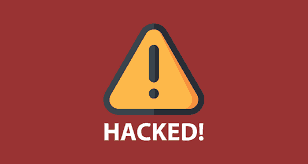
Some hacks make the news.
This was the case when 70 million people were compromised by the Target hack and when seven million businesses and 76 million consumers were affected by the hack on JP Morgan Chase.
However, not every hack makes headlines. The majority of hacks happen completely under the radar, affecting ordinary people who may not even know that their computer has been compromised.
This is because hackers are sophisticated. They can get into a computer system without tipping their hand to the owner.
Malware is used to infect the computer, and the hacker can always check back later to see how far the system has been compromised. This gives him some clues regarding other things that he might be able to do to that victim.
Often, hackers will sell your data at the dark web, for various malicious purposes.
While many people don’t recognize them, there are several telltale signs that can alert you that you’ve been hacked.
Learn to recognize these 12 signs, and you’ll be on the way to protecting yourself. Then, sign up for the best VPN available (Recommendation: try checking out our review for NordVPN or Surfshark) for further protection.
1. Constant Pop Ups in Your Browser
Some perfectly legitimate websites will have pop ups. These usually are related to the website, offering you come kind of discount or deal. This is mildly annoying, but it isn’t necessarily anything to worry about.
The story is different when you start getting pop ups everywhere you go. This is a constant problem, one that you begin to notice happening even on websites that didn’t used to have pop ups.
What’s more, these are totally random pop ups that have nothing to do with the website you’re browsing. Many of them tell you that you’ve won some sort of contest.
All you have to do is click on a link and maybe enter some information about yourself.
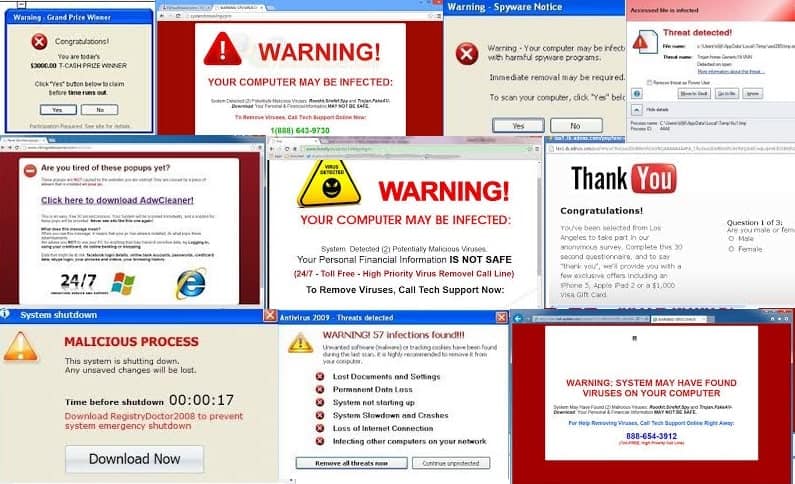
Beware of these pop ups. Don’t click on any links and don’t provide them with any of your personal data.
2. New Toolbars Installed on Your Browser

All browsers occasionally need an update to provide users with all of the latest features and functionalities, including enhanced security.
When these updates occur, your browser usually tells you about them and may even guide you through the various changes so that you understand them.
What about that day when a mysterious browser toolbar suddenly appears at the top of your screen? You haven’t changed any of your settings, and your browser hasn’t told you about any updates.
That toolbar can be incredibly annoying. It’s not familiar to you. You didn’t ask for it. Additionally, your browser settings appear to be altered. Nothing is working quite the way it usually does. It’s possible that you’ve even been given a new start screen, one that’s filled with spam.
These toolbars may be able to wreak havoc on your system by opening ad windows. If you click on any of the tools, you may download a malicious file to your computer.
If you find a mysterious toolbar on your computer, it’s vital that you act quickly to remove it. The longer it stays on your computer, the more damage it will be able to do. (Read more about the best secure browsers here)
3. New Software Suddenly Appears on Your Computer
Have you ever logged on to your computer only to discover that new software has been installed? This isn’t just some kind of automatic Windows update or another enhancement that makes your existing software faster or more secure.
This is entirely new software that you’ve never heard of and that you know you did not install.
It’s difficult to say what this new and mysterious software may be able to do to your computer. Some of this software may be able to take over the existing software on your computer, making it do whatever the malicious code tells it to do.
Software that mysteriously adds itself to your computer also may disable any antivirus protections that you have so that your system will be vulnerable to other attacks, and making your computer less safe for your children to use.
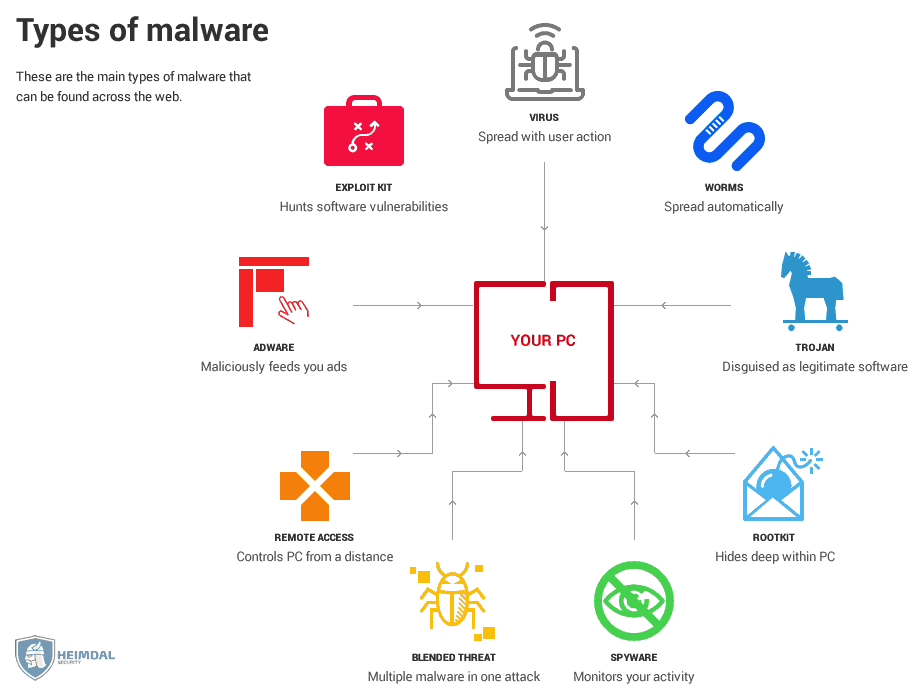
Occasionally, people open themselves up to this type of installation by downloading software from the Internet. Much of this is legitimate and non-malicious. Others are predatory.
That’s especially true with free software, which often downloads third-party software when you agree to download the initial package. This third-party software may put your entire system at risk.
If you must download software, make certain that you know the source and that you read the terms and conditions.
4. Website Auto Redirects
Few things are as annoying as trying to reach one website when you are automatically redirected to another. Hackers love to do this because it’s potentially a big money maker. They get paid by whoever owns the website to redirect traffic to it.
Usually, you’ll see this happening when you enter some keywords into a search engine. You’ll get a list of search results, and you click on one of them. However, instead of being taken to that website, you’re taken somewhere else.
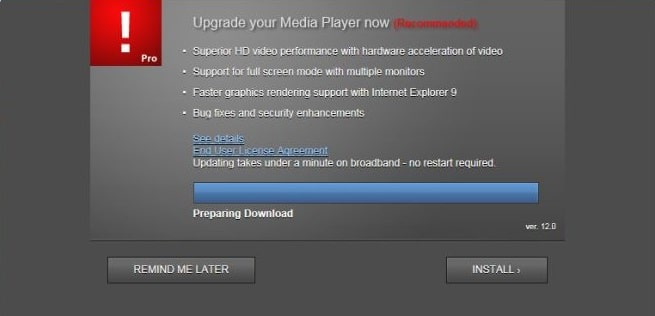
If this happens one time, it may be some sort of fluke, but if you’re seeing this happen repeatedly, it means that your system has been compromised.
Try entering some very specific keywords in your search engine. Click on the link for the top result. If you don’t arrive at that website, then you know your computer has been infected.
Complicating the matter is the fact that the website may indicate that you have actually reached the correct URL. This is because the hacker is using a proxy.
5. Phony Security Warnings
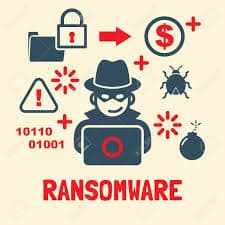
It’s always a cause for concern when your antivirus software pops up to tell you that there is a potential problem.
Pay attention to these warnings, but also be aware that sometimes you’re getting a warning because a hacker is at work.
Hackers look for software that isn’t up to date and any other old programs that may be lurking on your computer to try to infiltrate your system.
They use these out-of-date programs to make your computer send you warnings. By the time you get the message, the damage is done. You’ve been infected.
The warning usually directs you to click on a link to visit a website where you can get improved security software. People willingly do this, giving away their credit card information in the process.
Now, not only is their computer infected, but also the hackers have their financial information.
6. Ransomware Attacks
You’ll know you’ve been hit with a ransomware attack when your computer suddenly gives you a message that all of your files have been encrypted.
Encryption is good in many circumstances, but only if you request it. The demand says that if you want to be able to access your computer again, you’ll have to send money to a certain Bitcoin address.
If you fail to pay, the hackers will destroy your data. Of course, they may do so even if you do pay.
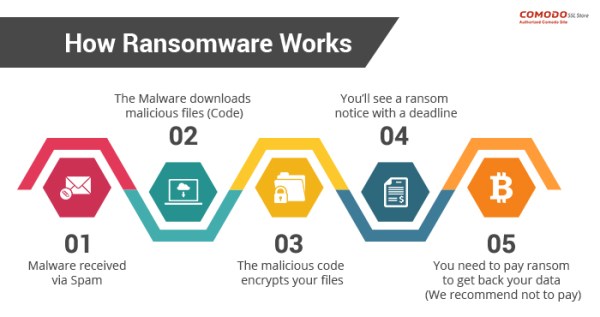
7. Unrecognized Social Media Messages
Many people use social media to communicate with their friends and the world. However, they have sometimes received a strange message that doesn’t appear to come from the purported sender.
Many of these unfamiliar messages contain a link that the recipient is supposed to click on. Clicking on it unleashes major problems.
If you get a suspicious-looking message from a friend, don’t click on it. Likewise, if you see that your account is sending messages that you didn’t send, it’s a sign that you social media accounts have been hacked.
8. Invalid Passwords

If you go to a website that you regularly visit but are denied access when you enter your password, this could signal a problem.
Try entering your password again. If it still doesn’t work and you’re certain that you’ve got the password right, then your account may have been hacked. The hacker has changed the password.
This may occur as the result of an email phishing scam wherein you click on a link in an email that takes you to a website where you enter your credentials. This gives the hacker your login details.
You can learn whether passwords protectors are safe, and quickly change them if you suspect someone has stolen your info.
9. Mouse Pointer Moving on Its Own
If you’re sitting at your computer and your mouse pointer suddenly starts moving on its own, this may be a sign that someone has hijacked your computer and you’ve been hacked. This is especially true if the mouse seems to be moving with some direction rather than just flying randomly across the screen, which signals a technical issue.
If the pointer is opening different files and moving with purpose, it’s likely that a hacker is controlling it.
10. Antivirus Protection Suddenly Disabled
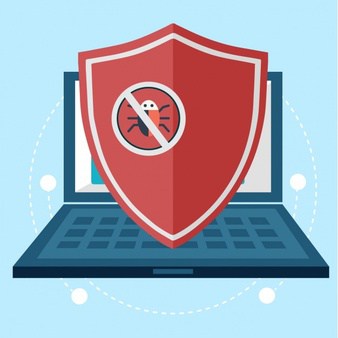
When a virus infects your computer, it may be possible for it to disable any antivirus software you have as well as eliminating other security protections on your system.
If you see something like this occurring on your computer, you would normally go to the Registry Editor or Task Manager to deal with it.
However, the virus won’t let you do this. These tools will probably be disabled too, and you’ll need to take other steps to address the situation. If you want to prevent these situations at no expense, check out some of the best free antivirus software available.
11. Missing Money or Unfamiliar Charges
It’s smart to check your bank account and credit card balances regularly. If you login to your checking account and the balance is lower than expected, then it’s time to review every transaction. You may find some that aren’t familiar.
The same is true with your credit card accounts, although in this case you’ll see your balance owed going up.
Once again, it’s time to review the recent transactions to look for anything unfamiliar. In case you’re in possession of some BitCoins, you should educate yourself further on storing crypto safely.
Notify your banking institution and credit card companies immediately if you discover these problems.
12. Purchases Shipped to an Unfamiliar Place
If you log into a bank account, credit card account or online retail account only to see purchases that you didn’t know about, then you also may notice that some products were shipped to an unfamiliar address.
This is hackers at work again, having a shopping spree on your dime.
This is especially dangerous if you’re a small business owner with a company bank account. In that case, you should check out the complete list of vulnerabilities for SMEs, which are often targeted by hackers.
You can protect yourself from most of these problems by not opening unfamiliar emails and not clicking on unknown links. Be careful to always follow security protocols, and keep your antivirus software up to date to protect yourself from intrusions by hackers.
You May Also Like:





